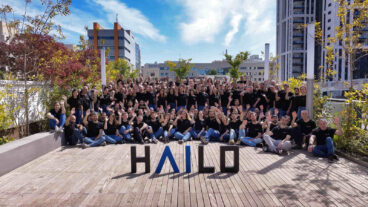PaNGo enables service providers to put into operation the mobile phone as a single device to access parking lots and pay for the service.Joseph Belhassen, executive vice president of business development at Israeli startup MobyDom was advising an acquaintance on the phone where to meet him near the company’s Ra’anana office.
“I’ll have to run down and meet you because there’s usually no place to park around here,” he told the caller, chalking it up to the giant number of employees belonging to high tech neighbors Amdocs and NICE.”
The irony is that MobyDom is quickly turning into one of the world’s most sophisticated developers of next generation mobile parking solutions, which both reduce the cost related with parking management on the operator’s side and increase driver convenience with its easy-to-use mobile interface.
Commuters who drive to work and find themselves wasting precious time looking for a parking lot with vacancies will find MobyDom’s PaNGo (Park and Go) solution a time-saving – and money saving advantage that does away with lines, those evasive ticket stubs that always get lost, and ornery parking lot attendants, explained Belhassen.
“When you register for the service the first time, you give your name, phone, license plate number and credit card. Then from that point on, once you arrive at a registered parking area, you dial a predetermined short number like *1234, the system will recognize you, tell you your license plate number and the billing will start. It’s simple, fast, and smart, and efficient,” he told ISRAEL21c.
“When you get back in your car, you ring the same number, and it stops the billing. So you pay for exactly the amount of time you parked – no more and no less.”
PaNGo enables service providers to put into operation the mobile phone as a single device to access parking lots and pay for the service. According to Belhassen, the platform is fully interactive, allowing true one-on-one relation between the motorist and the parking payment platform.
The PaNGo easy parking payment method – no searching purse or pocket for change, no running to the pre-pay machine when your time’s run out – will become a reality soon in parts of the US where MobyDom has signed an agreement with eTelcharge which handles the billing method for Modydom’s solutions.
“They operate primarily in Texas and California, and we’re about to start marketing the solution there. We also have contacts in Las Vegas, Washington DC and New York – places with big parking problems,” said Belhassen.
“This is a win-win situation for all,” said eTelcharge’s CEO Carl Sherman. “With such consumer and provider benefits our company feels sure that this solution will be readily adopted by the marketplace.”
MobyDom was founded in 2004 by Shlomo Zaitman, a former pilot and commander in the Israel Air Force. He’s been dealing with the concept of parking solutions for the last 10 years.
“He developed the idea while spending a year in London where he had been invited as a guest expert by the Royal Air Force,” said Belhassen. “He discovered how difficult it was to park in London, and realized that there needed to be something to replace the traditional system, something much easier to use for both the driver and the parking lot vendors.”
MobyDom is actually the third company that has used Zaitman’s concept of mobile technology in order to make parking and payment more accessible and easy. According to Belhassen, his first company VPS was founded in 1997, but the market wasn’t ready for such a sophisticated system, and after spending $3 million, Zaitman closed it in 2000.
“In the meantime, Shlomo got patents on wireless networks to manage parking operation in the US and Israel, and we have patents pending throughout Europe as well as Brazil and China,” said Belhassen.
“We look at the market as a global market – we’d like to provide a borderless service platform. For example is someone is registered on MobyDom and is traveling from Germany to the Netherlands, they’ll enjoy the same service in both countries – and in their own languages.”











